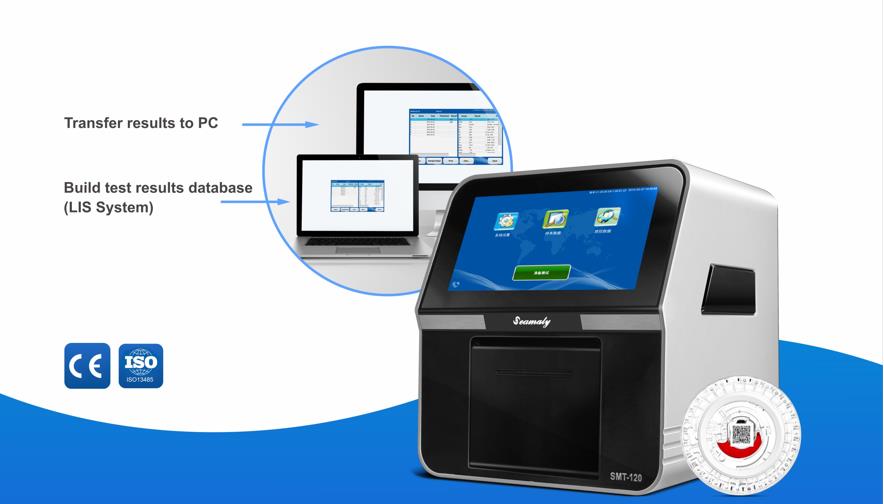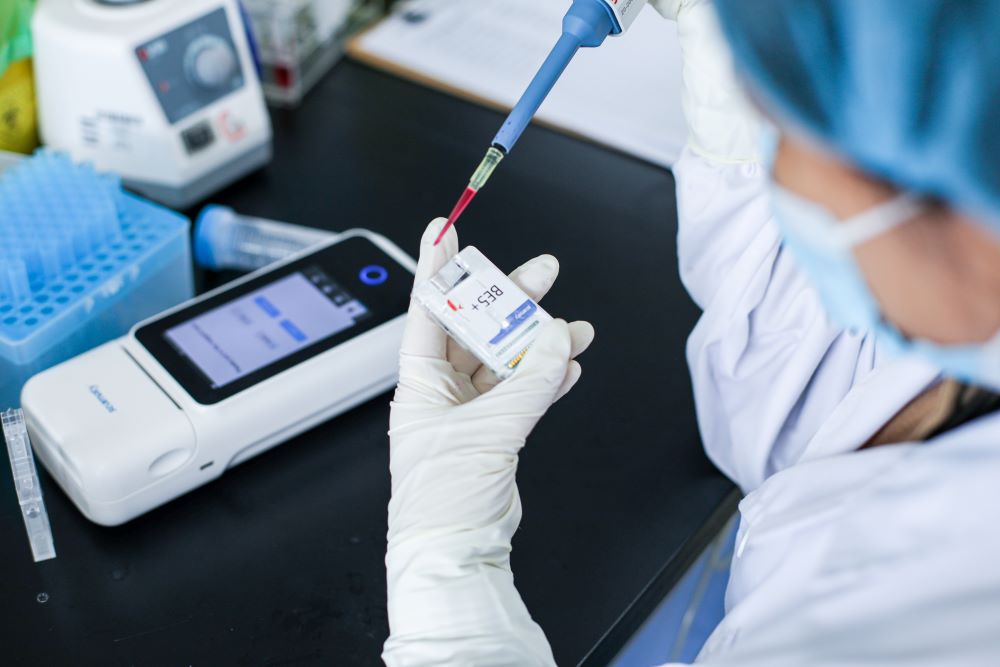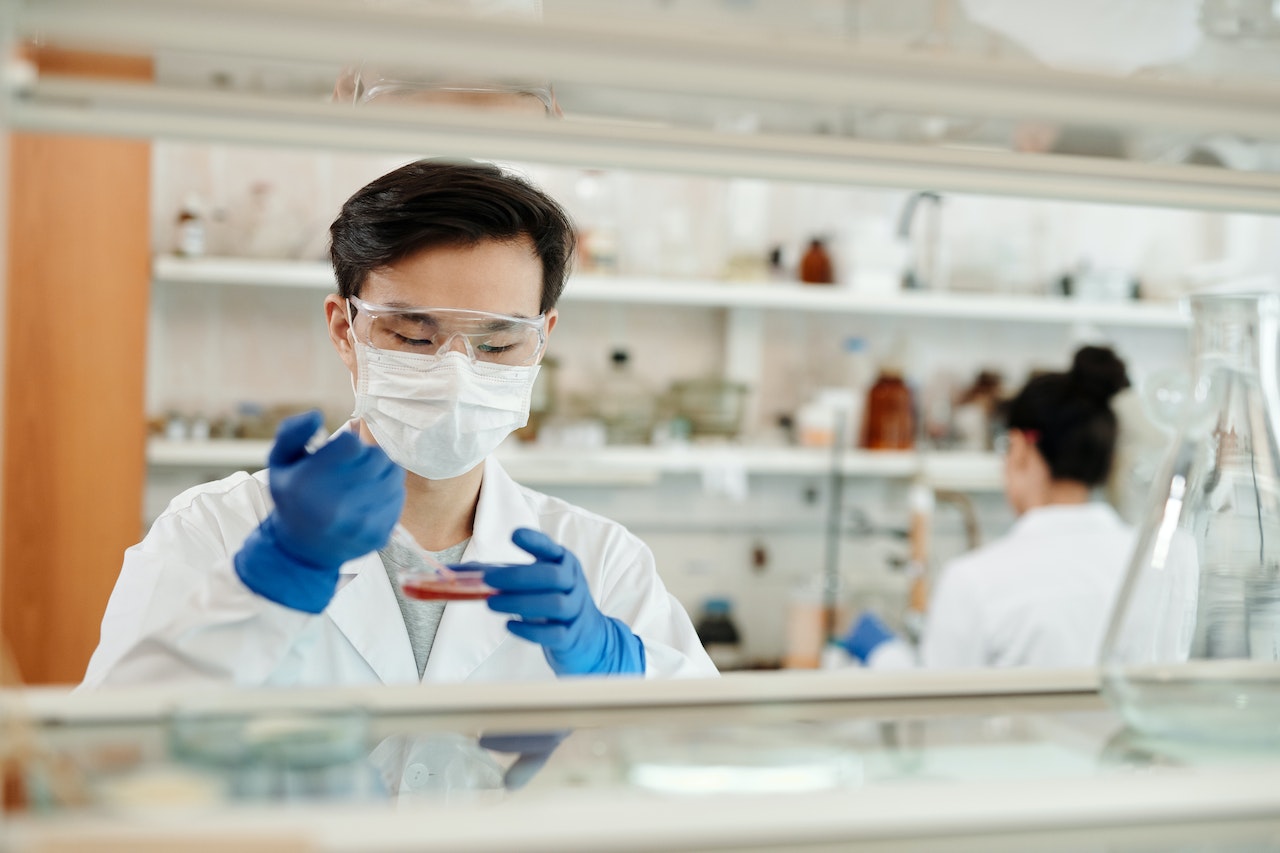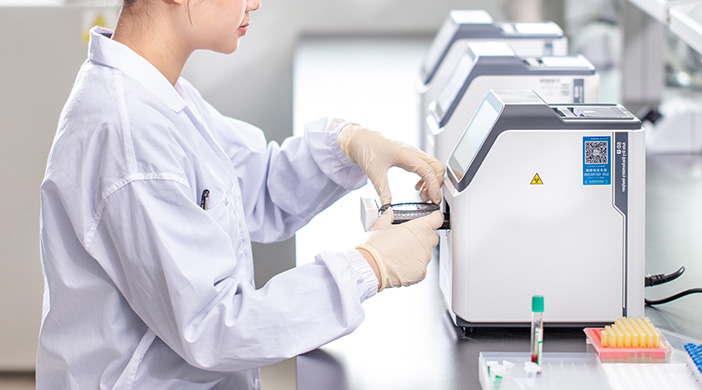There are many testing devices on the market for analyzing blood, such as: blood cell analyzers, biochemical analyzers, enzyme markers, chromosome karyotyping systems, spectrophotometers, frozen centrifuges, blood cell counters, etc. But do you know what type of blood tests they are used in?

-
1. Hematology analyzer: The most important of this analyzer is the blood cell analysis (blood routine).
-
2. Semi-automatic/automatic biochemical analyzer: This kind of biochemical analyzer does biochemical tests, such as: liver function, kidney function, blood glucose and lipids, etc.
-
3. Electrolyte analyzer: this analyzer does electrolyte testing, including potassium, sodium, chloride, calcium, etc.
-
4. Hemocoagulometer: this analyzer is to do PT, APTT, TT, FBI and other blood coagulation items.
-
5. Enzyme standard instrument: qualitative / semi-quantitative immunoassay: hepatitis B and half, hepatitis C antibody, HIV antibody...
-
6. Chemiluminescence analyzer: immuno-quantitative, including the detection of T3, T4, TSH, hormones, tumor markers, etc.
-
7. Radioimmunoassay analyzer: the same as above, because of radioactive waste, has been gradually replaced by chemiluminescent immunoassay analyzer.
-
8. Blood gas analyzer: blood gas analysis, mainly including partial pressure of oxygen, partial pressure of carbon dioxide, etc.
-
9. Blood vertebrate viscometer: blood rheology: high, medium and low whole blood/plasma viscosity.
-
10. PH meter: blood pH: most blood gas analyzers also have this function
-
11. Blood sedimentation meter: used for blood sedimentation determination, one more blood sedimentation equation coefficient than manual method
-
12. Blood glucose meter: used for emergency terminal blood glucose detection
-
13. Immunoturbidimeter: used for immunological project detection: ASO, RF, CRP, IG (G, D, E, M, A), C3, C4...
-
15. Electrophoresis instrument, spectrophotometric scanner: for: serum protein electrophoresis, hemoglobin electrophoresis, isoenzyme analysis...
-
16. Gene amplification instrument, electrophoresis instrument, time-resolved fluorescence analyzer: molecular biology diagnosis: hepatitis B DNA detection, parentage identification, etc.
-
17. Atomic absorption spectrophotometer: for trace element detection.
Other instruments and equipment:
Microscope: blood cell analysis
Centrifuge: Separation of serum
Water bath: simulate the human body 37 degrees environment
Incubator: blood bacterial culture, cell culture
etc.



